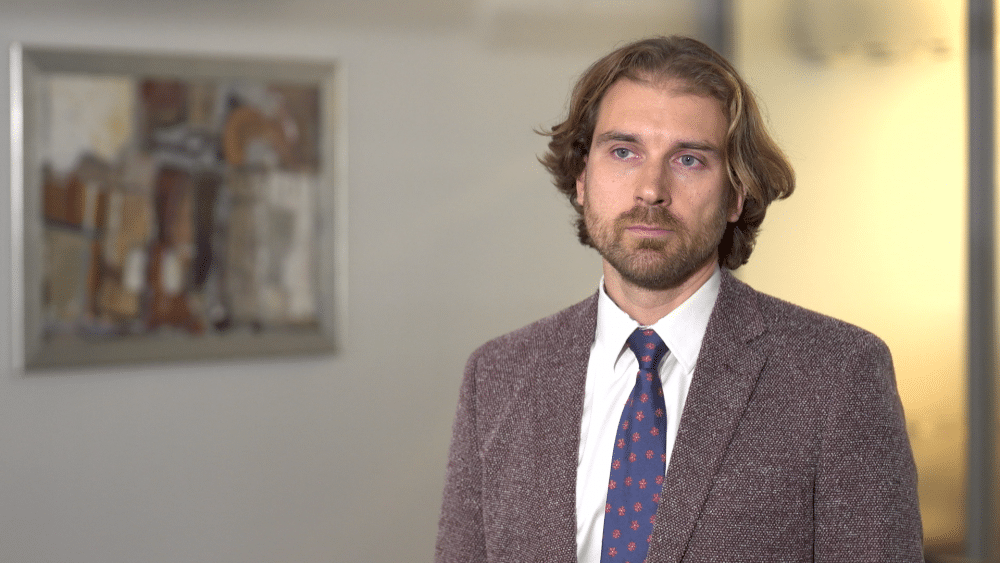New copyright laws give creators the right to royalties for the exploitation of their works on the internet. The beneficial changes concern, among others, the film industry and actors, but also press publishers and journalists, as the amendment adapts the regulations to the realities of the digital age. The practice of their application largely depends on the outcome of negotiations between creators and digital platforms, so-called big tech. Although the negotiating position of creators has been strengthened by the new regulations, they still fear the result of the talks.
The amended copyright law implements two directives of the European Parliament and the Council of the EU into Polish law – the SATCAB II directive and the Digital Single Market directive, which are the EU’s response to the current challenges related to the development of digital technologies in the field of copyright. The new regulations give creators the right to royalties for the exploitation of their works on the internet.
“Mainly, economically, the creators will benefit because the regulations have somewhat changed in favor of ensuring the so-called fair remuneration for creators. There is an option of increasing the remuneration by the court, this aspect has been regulated more broadly than before, although we already had such regulations in Polish law. However, it seems that most will be gained by audiovisual creators, artists, performers, and media,” says Jakub Słupski, a lawyer from Patpol Legal, in a conversation with the Newseria Biznes agency.
The previous copyright laws only indicated general rules concerning royalties due to creators. The law introduces mechanisms to guarantee authors a fair remuneration for the use of their works. KPMG indicates that the remuneration will have to be adjusted to the scope of the granted right, the character and scope of use, and the benefits resulting from the use of the work. To make it easier to determine the “fairness” of compensation, the lawmaker proposed introducing a presumption, according to which remuneration proportional to the revenues from the use of the work meets the described requirement. In case of improper determination of compensation, the creator will have the right to claim an appropriate increase in remuneration through the court. The regulations also aim to eliminate the inequality between individual creators and purchasers of their works, who often come out of a strong negotiating position, preventing creators from obtaining favorable contract terms.
“The creators of audiovisual works and actors or performers of soundtracks will gain the right to remuneration for the distribution of works with their contribution on the internet. This is a new entitlement that will cause a certain revolution in access to remuneration and will actually improve the situation of creators. Large companies, such as Netflix, will have to share their profits to a greater extent,” explains the expert. “On the other hand, we have basically all the media, who only at the very end of the legislative process fought for certain rights. They will also greatly benefit from this and will be able to better defend their rights from exploitation by large companies, such as Google, of content generated by the media.”
The Chamber of Press Publishers points out that digital platforms earn even several billion zlotys a year from advertisements linked to the materials. In 2021, when Canadian publishers managed to negotiate an agreement with Google on the use of their content, it was calculated that only between 2005 and 2015, revenues from them in Canadian newspapers fell from 875 to 119 million Canadian dollars. The money went instead to Facebook and Google, which used newspaper articles – their share in the total online advertising market exceeded more than 80 percent.
Now big techs will also have to share their profits with those who incur the costs of producing works in Poland. The Chamber of Press Publishers estimates that publishers should gain several hundred million zlotys a year from this. The regulation adopted by the government introduces a new related right for press publishers to use their online publications. Publishers will have the right to exclusive online exploitation of their press publications by internet platforms.
“For two years from the first distribution of the work, the publisher will have the right to receive remuneration for the distribution of press material on the internet. Thanks to this, during this period when this work, press material is the most valuable and most often distributed, compensation will be due. Importantly, journalists will have the right to 50 percent of the remuneration that the publisher receives for this, so the money will go to the actual creators of this content, not just the publishers. This change seems very important as it will even allow some entities to stay in the market,” explains the lawyer from Patpol Legal.
The amount of publisher’s remuneration will have to be negotiated with the platforms. In case of no agreement, the president of the Office of Electronic Communications will mediate between both sides.
“It seems that the position of those groups of creators who benefit the most from this amendment will be strengthened. However, we shall see how this will work in practice, whether large technology companies will cooperate with creators and media organizations or attempt to impose their will despite existing regulations. This is a conflict of interests and can always turn out in different ways, but the amendment provides a basis for strengthening the negotiating position of creators and hence there is a chance that their interests will be properly protected,” assesses Jakub Słupski. “The amendment introduces quite complicated mechanisms, so the practice may be different from what the authors of the amendment and the concerned social groups may think, so we will probably find out only after some time.”
